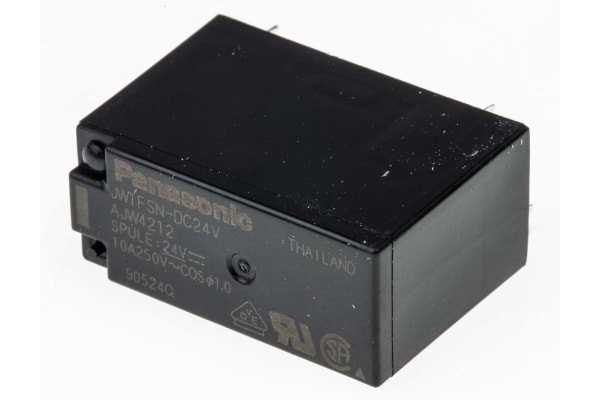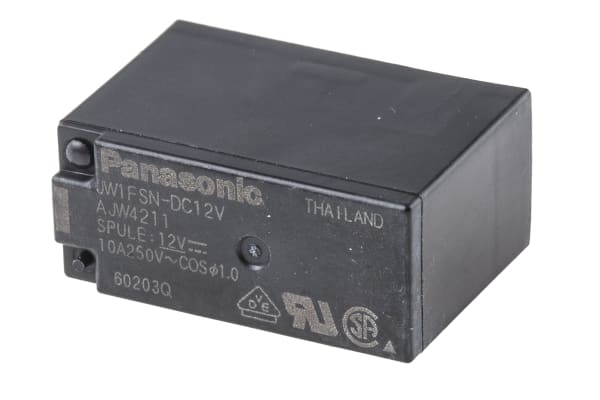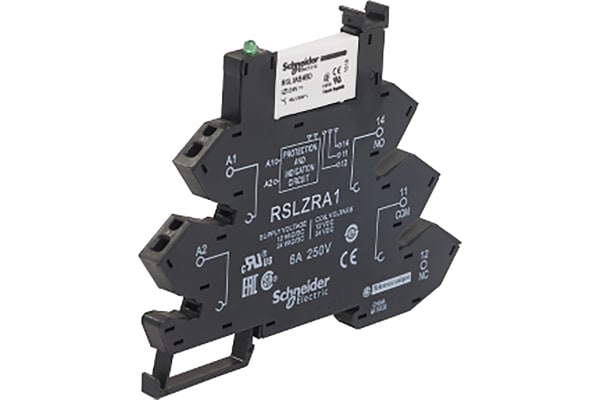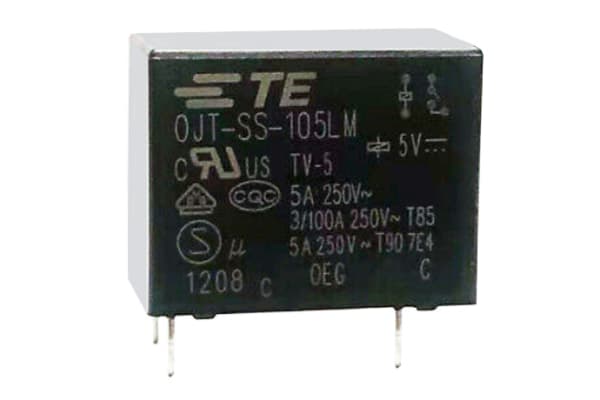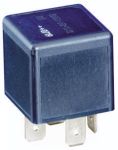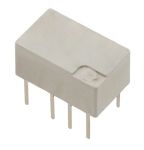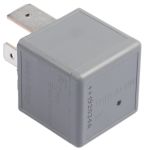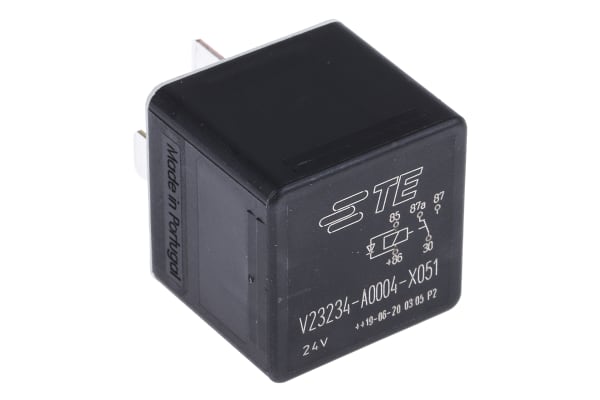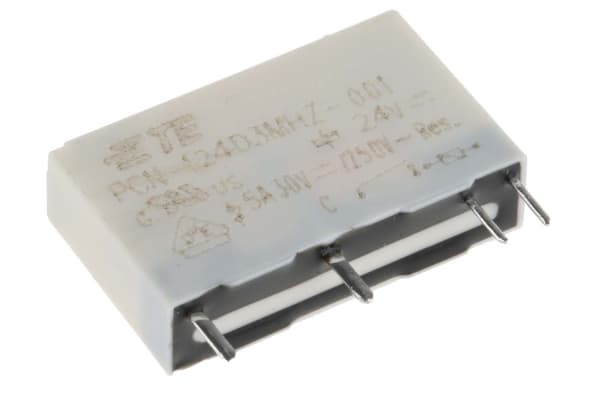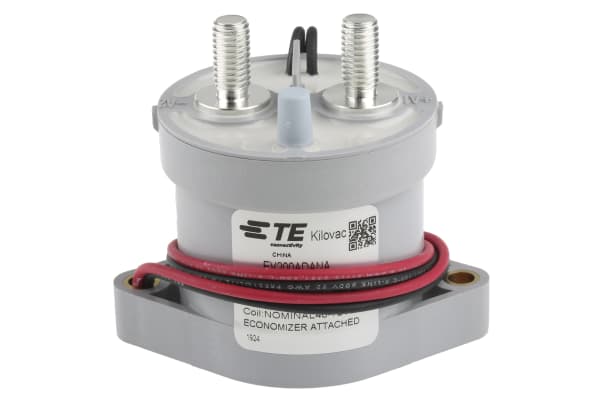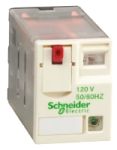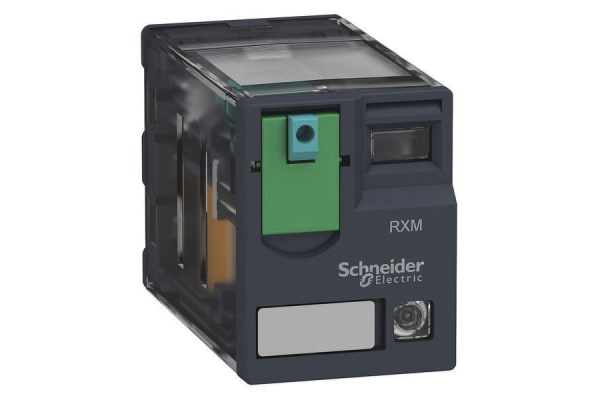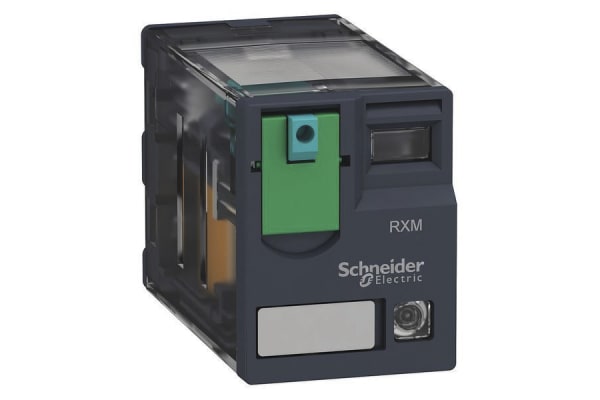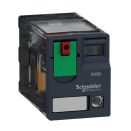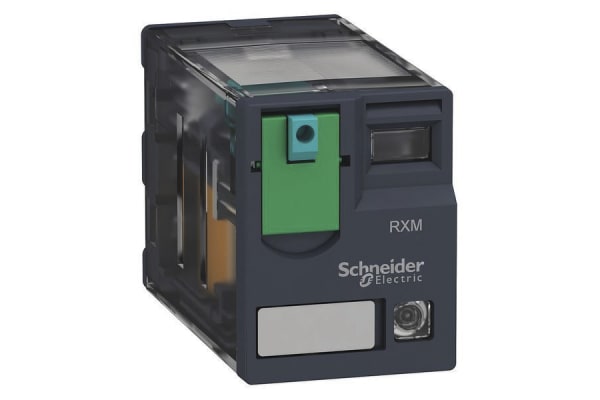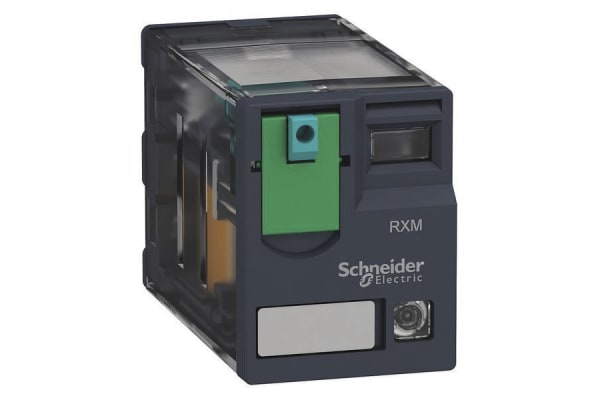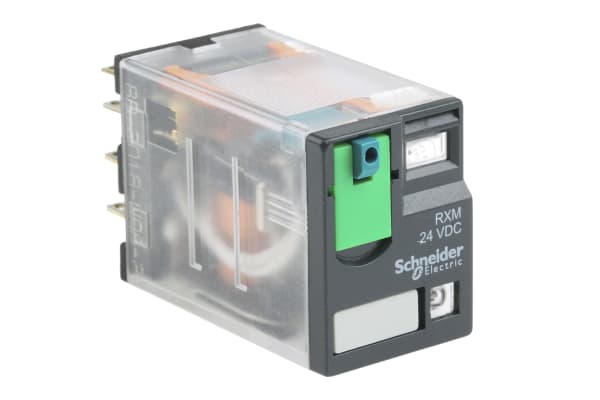Non-Latching Relays
Relays are electrical switches that are operated by electrical impulses with the primary function to open and close a circuit, they can also be referred to as industrial switches. There are 2 main types available, latching and non–latching relays.How do non-latching relays work?Non-latching relays are in a normally closed (NC) position and will stay in this state without power. When power passes through the circuit, the relay switched to a normally open (NO) position by using an internal coil to generate a magnetic force, holding this NO position. Once the current is turned off, it returns to the NC position. This makes non-latching relays well suited to push-button applications like keyboards and micro-controller input buttons.What are non-latching relays used for?Non-latching relays are highly durable and versatile components, making their performance long lasting and suitable for use in a wide range of applications, such as:Automotive enginesHousehold appliancesIndustrial machineryMedical equipmentTelecommunications equipmentWhat is the difference between latching and non-latching relays?Both types of relays in similar in design and function, however, a significant difference between them is that a latching relay will remain in the last position it when it was last powered, whereas a non-latching goes back to its normal position. This makes each more type of relay suitable for different applications. Considerations when selecting a relayWhen choosing a relay, it is important to consider a number of specifications to ensure it is fit for purpose, some factors include:Coil voltage – the required voltage to actuate the switching mechanism. If a voltage is too high this could damage the components, if it is too low then it will not actuate. Contact configuration – This is the state the contacts are in without power. For example SPST, single pole single throw.Contact material – the relay contacts are available in many materials that have certain properties. Common materials are gold, silver, tin oxide and nickel Coil power – the amount of power (watts) the coil operates at. This must match the power in the circuit for correct function. Coil resistance – the amount of resistance (ohms) in the circuit that the coil creates.
-
Panasonic, 24V dc Coil Non-Latching Relay SPDT PCB Mount Single Pole, JW1FSN-DC24V
IDR228,135.75Pack (1 Pack of 5) -
Panasonic, 12V dc Coil Non-Latching Relay SPDT PCB Mount Single Pole, JW1FSN-DC12V
IDR220,269.00Pack (1 Pack of 5) -
Phoenix Contact, 24V dc Coil Non-Latching Relay SPDT, 1mA Switching Current PCB Mount Single Pole, 2961121
IDR295,475.13 -
Schneider Electric, 24V ac/dc Coil Non-Latching Relay SPDT, 6A Switching Current Single Pole, RSL1PRBU
IDR416,518.19 -
TE Connectivity, 5V dc Coil Non-Latching Relay SPNO, 5A Switching Current PCB Mount Single Pole, OJT-SS-105LM,000
IDR128,280.47Pack (1 Pack of 5) -
TE Connectivity, 24V dc Coil Automotive Relay SPDT, 60A Switching Current Plug In Single Pole, 1-1414167-0
IDR208,731.10 -
TE Connectivity, 3V dc Coil Non-Latching Relay DPDT, 2A Switching Current PCB Mount, 2 Pole, 1462037-4
IDR45,627.15 -
RELAY POWER 70A 24VDC PLUG-IN
IDR360,402.04 -
TE Connectivity, 24V dc Coil Automotive Relay SPDT, 50A Switching Current Plug In Single Pole, 2-1904025-3
IDR123,665.31 -
TE Connectivity, 24V dc Coil Non-Latching Relay SPNO, 5A Switching Current PCB Mount Single Pole, 7-1461491-6
IDR102,687.31 -
TE Connectivity, 12V dc Coil Non-Latching Relay SPNO, 16A Switching Current PCB Mount Single Pole, 2-1440002-4
IDR44,788.03 -
TE Connectivity, 32 → 95V dc Coil Automotive Relay, 500A Switching Current Panel Mount Single Pole, EV200ADANA
IDR3,472,698.12 -
Schneider Electric, 120V ac Coil Non-Latching Relay 4PDT, 3A Switching Current Plug In, 4 Pole, RXM4GB2F7
IDR203,591.49 -
Schneider Electric, 24V dc Coil Non-Latching Relay 4PDT, 3A Switching Current Plug In, 4 Pole, RXM4GB2BD
IDR185,655.30 -
Schneider Electric, 24V dc Coil Non-Latching Relay 4PDT, 8A Switching Current Plug In, 4 Pole, RXM4AB3BD
IDR182,298.82 -
Schneider Electric, 12V dc Coil Non-Latching Relay 4PDT, 8A Switching Current Plug In, 4 Pole, RXM4AB2JD
IDR202,752.37 -
Schneider Electric, 125V dc Coil Non-Latching Relay 4PDT, 8A Switching Current Plug In, 4 Pole, RXM4AB2GD
IDR201,913.25 -
Schneider Electric, 48V ac Coil Non-Latching Relay 4PDT, 8A Switching Current Plug In, 4 Pole, RXM4AB2E7
IDR195,410.07 -
Schneider Electric, 220V dc Coil Non-Latching Relay 4PDT, 8A Switching Current Plug In, 4 Pole, RXM4AB1MD
IDR179,886.35 -
Schneider Electric, 230V ac Coil Non-Latching Relay DPDT, 12A Switching Current Plug In, 2 Pole, RXM2AB2P7
IDR178,313.00 -
Schneider Electric, 24V dc Coil Non-Latching Relay DPDT, 12A Switching Current Plug In, 2 Pole, RXM2AB1BD
IDR146,846.00 -
Schneider Electric, 120V ac Coil Non-Latching Relay 4PDT, 8A Switching Current Plug In, 4 Pole, RXM4AB2F7
IDR201,703.47 -
Schneider Electric, 24V dc Coil Non-Latching Relay 4PDT, 8A Switching Current Plug In, 4 Pole, RXM4AB2BD
IDR205,899.07 -
Schneider Electric, 230V ac Coil Non-Latching Relay 4PDT, 8A Switching Current Plug In, 4 Pole, RXM4AB1P7
IDR177,998.33



